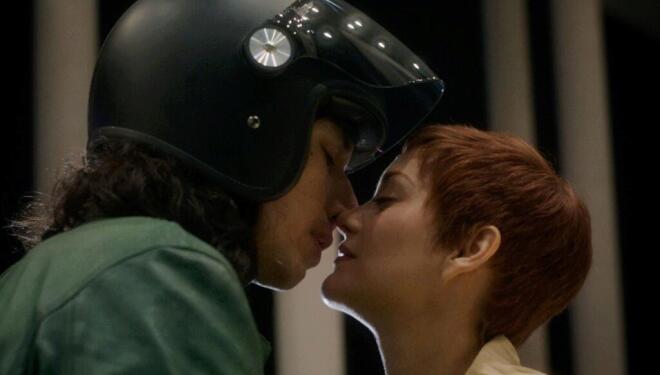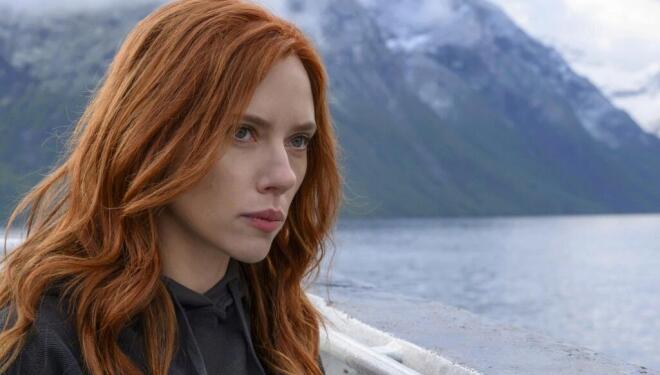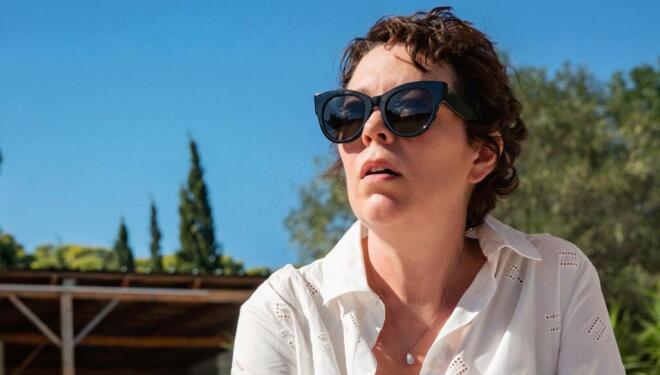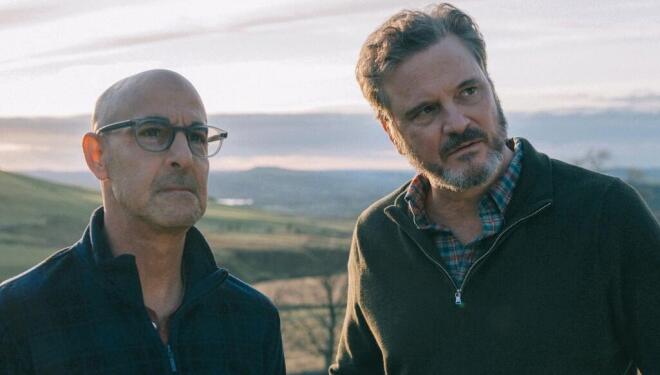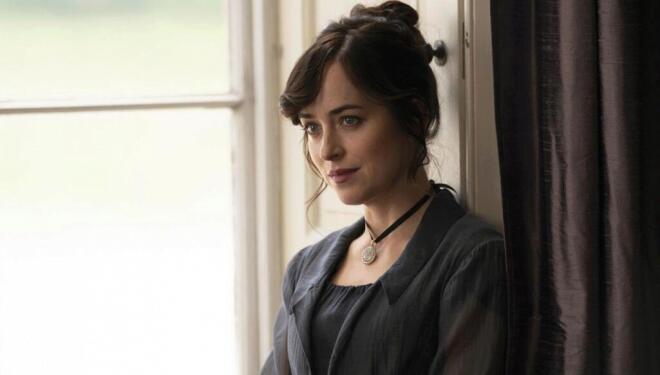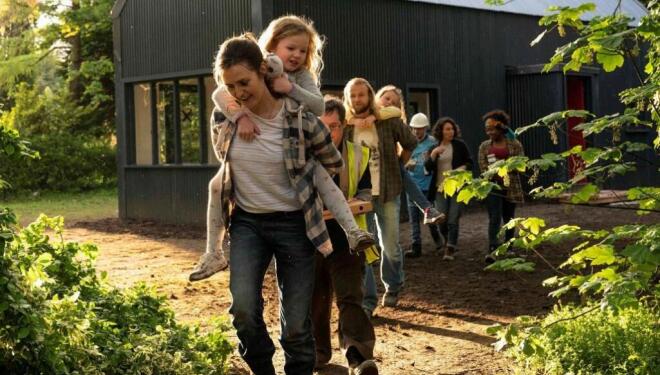
Their efforts are admirable, but as they block the light they shortchange the few preciously good moments in the lives depicted. We can perhaps agree that most people are the worst, but it’s the exceptional humans that make life worth the endless struggle.
Irish director Phyllida Lloyd’s latest film Herself is devastating and depressing, and its small spikes of hope always teeter on the edge of futility. But the charity and altruism of decent people shine through. It’s a harsh but beautiful journey.
Sandra (Clare Dunne) is the selected sufferer, a mother to two girls, working two jobs, and wife to a man who hits her. He, Gary (Ian Lloyd Anderson), one day politely asks his kids to step outside. As one of them exits, Sandra whispers ‘Black Widow’. The girl runs for help, without exactly knowing why, as her father fractures her mother’s hand.
Sandra manages to move out, suffering ordeal after ordeal – existing in the unjust state of joint custody. Dunne, who also wrote the screenplay with Malcolm Campbell, breathes those fears and traumas onto the screen: building, building, building inside Sandra to a near-avalanche of violent flashbacks. Each time she drops the girls at their dad’s, your heart sinks. But she has no choice: those are the legal terms.
They stay in a cheap apartment, near an airport. They're not allowed to enter through the glossy front entrance. It’s a small space, but they manage – helped along by a Women’s Aid charity worker, Sandra’s first ally. But soon, she has an idea engendered from her daughter’s fairy story: to build a house, a refuge that Mark won’t find.
It’s a strange and fanciful idea, but as she thinks about it more, and watches instructional videos on YouTube, she finds the confidence to pursue it. A gaggle of friendly workers forms over the course of the film, providing its magic, its soul. The elderly rich doctor Peggy, sharply played by Harriet Walter (Killing Eve), finances the project. The grandfatherly builder Aido, a reluctant but warm Conleth Hill (Official Secrets, Game of Thrones), organises the construction with a growing team of non-professionals.
After enduring a grey world where joy and kindness are fantastical, these moralistic scenes pick flowers from the ashes. This critic shed some happy tears during the building montages, especially as Sia’s Titanium pumps along to that day’s accomplishment. These music cues and their perfect synchronicity recalls Lloyd’s most famous film credit: the Mamma Mia! movie. The two films couldn’t be more different, which demonstrates Lloyd’s exceedingly wide range as a director.
Sharon Horgan produces the film via her company Merman, another in a long string of female-driven stories (including Aisling Bea’s wonderful comedy-drama This Way Up). Dunne and Campbell’s script skirts the feel of a charity advert, on the whole avoiding shoehorned speeches. That's with the exception of one line, towards the end, which strikes such an honest chord that it doesn't feel like an appeal.
Herself demolishes and rebuilds your faith in humanity. It’s strangely feel-good, but only after a lot of past and present torment. It’s careful, also, to never secure complete comfort for Sandra. She has many issues still to sort out, and they don't just all disappear. But hope in others will keep her going, and hope is worth the misery.
Reviewed at the London Film Festival 2020. Herself will be in UK cinemas on Friday 10 September.
| What | Herself movie review |
| When |
10 Sep 21 – 10 Sep 22, IN CINEMAS |
| Price | £determined by cinemas |
| Website | Click here for more information |

